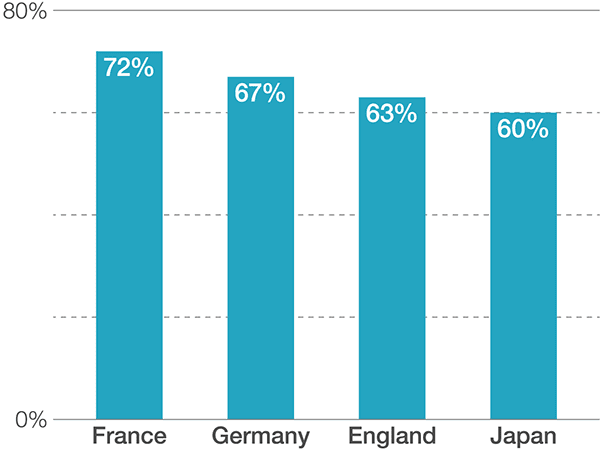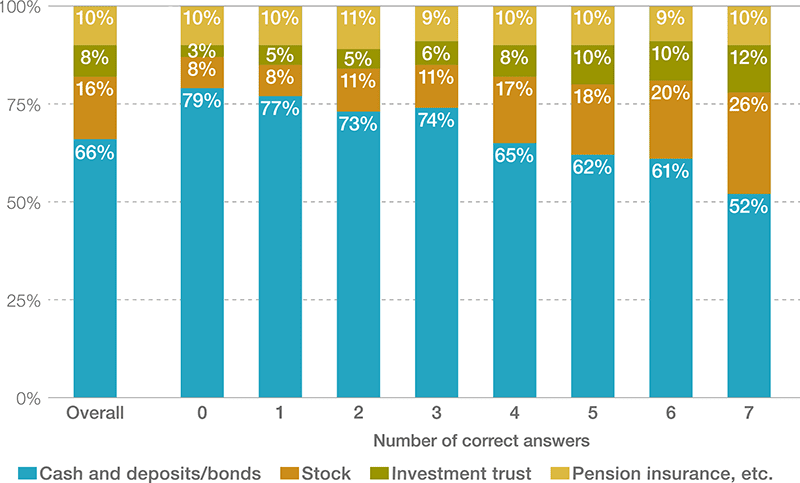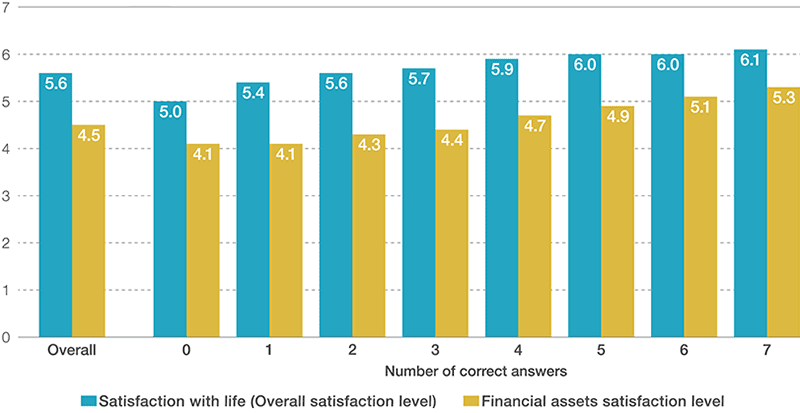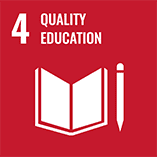February 2021
Does Financial Literacy Lead to Greater Satisfaction in Life?

The fourth SDG goal is education. While the standard of education in Japan is considered to be high, compared to some western countries, Japan is lagging in some areas.
TThe Central Council for Financial Services Information in Japan conducted a financial literacy survey in 2019. In the survey, the Council noted that Japan scored 60% in the OECD’s financial knowledge questions. This was lower than other countries such as England (63%), Germany (67%) and France (72%).
OECD financial literacy study

Source:Financial Literacy Survey (2019), Central Council for Financial Services Information
The level of financial literacy, that is knowledge of money and decision-making regarding money, is said to be low in Japan where there are not many opportunities to learn about money. In the survey conducted by the Central Council, 67.2% of respondents said financial education should be taught but only 8.5% said they had received such education.
Having financial knowledge is useful in managing household finances and avoiding money-related trouble. As such, people should ideally have opportunities to learn about finance at each stage of their life.
In a time like now when people are expected to live to a hundred, it is especially important to think about building future assets. Nomura believes that having the correct knowledge and understanding of finance and the economy is a critical part of this.
The bar graph below shows the results of a financial literacy test conducted by Nomura Asset Management in 2018. In addition to showing a relationship between the ratio of securities investments to financial assets, and the level of financial literacy, we can also see that people with a higher level of financial literacy tend to diversify their assets.
Financial asset composition by financial literacy level

Note:Financial literacy based on the number of correct answers to seven questions about interest rate, compound interest, definition of inflation, risk-return, diversified investment, bond price and mortgage.
Source:Nomura Asset Management
Satisfaction with life by financial literacy level
(Overall satisfaction level; financial assets satisfaction level)

Note:Financial literacy based on the number of correct answers to seven questions about interest rate, compound interest, definition of inflation, risk-return, diversified investment, bond price and mortgage.
Source:Nomura Asset Management
Results also suggest that a higher level of financial literacy leads to a better understanding of securities investments and a more proactive approach. This has a positive effect on financial assets, and as a result, the level of satisfaction with financial assets and even with life may be higher.
Nomura is committed to providing opportunities for a wide range of people to improve their financial literacy. Since the 1990s, we have taught financial literacy to over 880,000 people across Japan, including financial education programs for students from the elementary to university level, seminars for teachers, and as part of lifelong learning lessons for people in the wider community. In 2001, we started offering a financial course taught by Nomura Securities employees to help university students gain practical knowledge about the economy. Over 260,000 students from about 2,100 universities across Japan have taken the course.
From 2020, we began offering our financial and economic education programs online, allowing us to reach people living in remote areas of Japan. Nomura will continue to promote financial literacy through our education programs.
SDGs Goals




